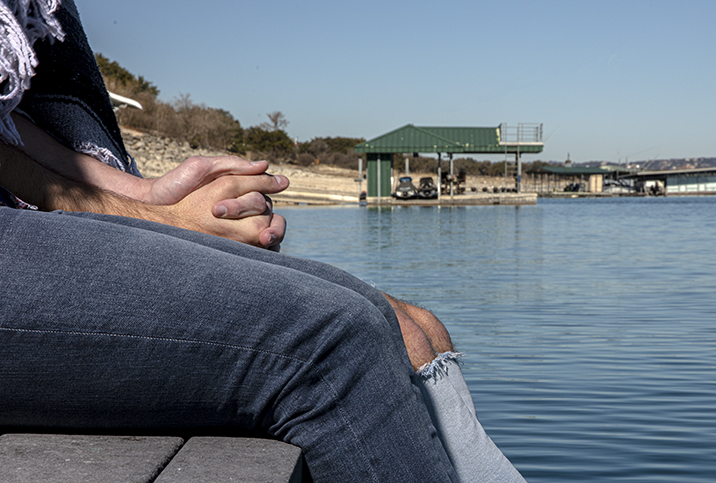The Connection Between PTSD and Erectile Dysfunction

For many men, erectile dysfunction (ED) is caused by psychological factors, one of which can be post-traumatic stress disorder (PTSD). While usually associated with war veterans, PTSD can affect anyone who has experienced trauma.
Post-traumatic stress disorder impairs sexual functioning in a variety of areas, including sexual desire and libido, arousal, orgasm, activity and satisfaction. In addition to ED, some men with PTSD commonly report problems with premature ejaculation and overall sexual disinterest.
What is PTSD?
Before we delve into the connection between post-traumatic stress disorder and erectile dysfunction, we should have a good understanding of what PTSD actually is.
An estimated 8 percent of Americans will be diagnosed with PTSD at some point in their life. Events that cause post-traumatic stress disorder include exposure to death or the threat of death, severe injury, rape or sexual violence, and witnessing a loved one endure trauma.
PTSD sufferers experience disturbing and intense feelings and thoughts that last long after the inciting trauma has ended. Other symptoms include avoidance of any triggers associated with their trauma, constantly being in a hyper-alert state and memory blocking.
People with PTSD may relive the trauma through nightmares or flashbacks; in addition, they may feel anxiety, sadness, anger, fear and detachment from others.
Post-traumatic stress disorder is officially diagnosed a month after exposure to trauma, while the immediate symptoms from a traumatic event are diagnosed as acute stress disorder. Some people, however, don’t experience PTSD until years after a given event.
Post-traumatic stress disorder can occur in all people, no matter their age, gender, ethnicity or nationality.
What the research says
According to a 2015 research review published in the Journal of Sexual Medicine, both men and women with post-traumatic stress disorder may experience sexual dysfunction and relationship difficulties, and they report having these issues more often than people without PTSD.
Researchers concluded that the sexual problems PTSD patients experience might occur because their brain connects the sensation of healthy sexual arousal to aggression. In this way, post-traumatic stress disorder could lead to erectile dysfunction by disrupting a man’s sense of safety and trust, causing him to associate arousal with a threat. In other words, sexual arousal can imitate the physiological experience of fear. Once these associations have been forged in a traumatic experience, it can be difficult to separate them.
The authors of the review wrote that because PTSD and libido compete for the same neurological and hormonal networks, drugs used to treat ED can cause flashbacks and panic attacks in men who have post-traumatic stress disorder.
For example, yohimbine, an herbal supplement marketed to aid erectile dysfunction, increases the release of norepinephrine, a chemical in the body that acts as both a hormone and a neurotransmitter. While an increase in norepinephrine can help boost sexual desire, high levels can create a fear response.
If you are using herbal supplements to self-medicate, please be advised that you should let your doctor know, so you avoid drug-to-drug interactions. You should also know that few herbal supplements have been tested by or approved by the Food and Drug Administration (FDA).
PTSD and its resulting sexual problems are especially common among war veterans. Nearly 20 percent of U.S. soldiers who have returned home from Iraq and Afghanistan are estimated to suffer from post-traumatic stress disorder.
In most of these veterans, many of whom are age 40 or younger, PTSD increased the risk of sexual dysfunction by more than three times, according to a 2013 study published in the Journal of Sexual Medicine. Erectile dysfunction and premature ejaculation were the most commonly reported problems.
A 2002 study published in Urology found that 85 percent of combat veterans who underwent treatment for post-traumatic stress disorder reported symptoms of ED, compared to just 22 percent of the control group.
Treatment for PTSD & ED
If you are suffering from post-traumatic stress disorder and erectile dysfunction, talk to your doctor about the best course of treatment.
Recovering from PTSD involves many of the same treatment methods used for psychological ED. With the help of a mental health professional, you can learn coping mechanisms to reduce the severity of your symptoms. Various medications that are often used to treat post-traumatic stress disorder may also cause sexual dysfunction, so be sure to talk to your doctor to minimize the potential side effects of your medications.
Forms of psychotherapy used to treat PTSD include cognitive processing therapy, eye movement desensitization and reprocessing (EMDR), and cognitive behavioral therapy. Some people living with post-traumatic stress disorder find relief from alternative therapies, such as yoga and meditation. Many people find PTSD support groups helpful, as well. Some individuals with PTSD may turn to self-medication with alcohol or other recreational drugs, which can cause further sexual dysfunction. Avoid such misuse and maintain healthy exercise and dietary habits to treat both post-traumatic stress disorder and sexual dysfunction.
No two PTSD and ED cases are exactly alike. Everyone is different, so a treatment that works for another person may not work for you. Your doctors will take into account the facts and circumstances of your unique situation.
It takes time to treat post-traumatic stress disorder and psychological erectile dysfunction, so try to be patient and keep in mind that most people get better with proper treatment.


















